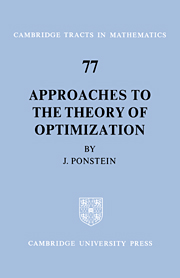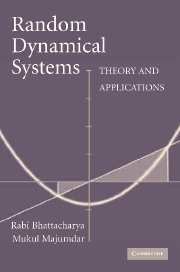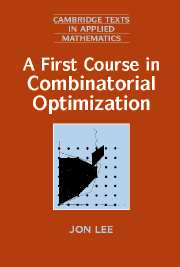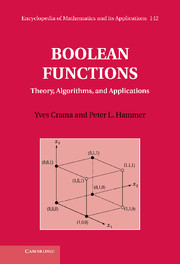Game Theory and Strategy
This book pays careful attention to applications of game theory in a wide variety of disciplines. The applications are treated in considerable depth. The book assumes only high school algebra, yet gently builds to mathematical thinking of some sophistication. Game Theory and Strategy might serve as an introduction to both axiomatic mathematical thinking and the fundamental process of mathematical modelling. It gives insight into both the nature of pure mathematics, and the way in which mathematics can be applied to real problems.
- Teaches mathematical modelling in a variety of contexts
- Wide ranging applications
Reviews & endorsements
'Game Theory and Strategy is an elegant, crystal-clear expository work. Key concepts are emphasized and clearly explained.' Nature
Product details
November 1996Paperback
9780883856376
254 pages
229 × 154 × 17 mm
0.35kg
This item is not supplied by Cambridge University Press in your region. Please contact Mathematical Association of America for availability.
Table of Contents
- Part I. Two-Person Zero-Sum Games:
- 1. The nature of games
- 2. Matrix games: dominance and saddle points
- 3. Matrix games: mixed strategies
- 4. Application to anthropology: Jamaican fishing
- 5. Application to warfare: guerillas, police, and missiles
- 6. Application to philosophy: Newcomb's problem and free will
- 7. Game trees
- 8. Application to business: competitive decision making
- 9. Utility theory
- 10. Games against nature
- Part II. Two-Person Non-Zero-Sum Games:
- 11. Nash equilibria and non-cooperative solutions
- 12. The prisoner's dilemma
- 13. Application to social psychology: trust, suspicion, and the F-Scale
- 14. Strategic moves
- 15. Application to biology: evolutionarily stable strategies
- 16. The Nash arbitration scheme and cooperative solutions
- 17. Application to business: management-labor arbitration
- 18. Application to economics: the duopoly problem
- Part III. N-Person Games:
- 19. An introduction to N-Person games
- 20. Applications to politics: strategic voting
- 21. N-Person prisoner's dilemma
- 22. Application to athletics: prisoner's dilemma and the football draft
- 23. Imputations, domination, and stable set
- 24. Application to anthropology: pathan organization
- 25. The core
- 26. The shapley value
- 27. Application to politics: the Shapley-Shubik power index
- 28. Application to politics: the Banzhaf index and the Canadian constitution
- 29. Bargaining sets
- 30. Application to politics: parliamentary coalitions
- 31. The nucleolus and the Gately point
- 32. Application to economics: cost allocations in India
- 33. The value of game theory.






